Ignorance Test (IMI-M1-01-EN)
Platform Administrator
Objectives
- To demonstrate that people may have wrong assumptions
- To stimulate reflection on the information disorder
- To develop basic skills in using a specific tool for developing a fact-based world view;
- To stimulate critical thinking
- To raise discussion on the causes and other influences regarding belief in information disorder
Target group(s)
- Students
- Adolescent youth
- Educators, trainers, councillors, youth workers
- Any citizen
Description
The “Ignorance Tests” were devised by Hans Rosling, a renowned Swedish physician, academic and public speaker, known for his passionate advocacy of using data and statistics to challenge common misconceptions and promote a fact-based worldview. He often conducted what he called "ignorance tests" during his public presentations to highlight the gap between people's perceptions and actual data about global issues.
The Ignorance Tests present audiences with multiple-choice questions about various global trends, such as population growth, poverty, and education. The questions are designed to challenge prevailing stereotypes and biases. The purpose of these tests has been to demonstrate that even experts in various fields often may have misconceptions about global trends. Rosling's work has emphasized the importance of understanding data and using it to inform our worldview, especially in an age of information overload and sensationalism.
For this activity we will experiment with the Ignorance Test based on the 2023 Refugee Misconception Study of the Gapminder Foundation that was established by Rosling.
Format 1 (Group Activity, 45 minutes):
Introduction (10 minutes)
The facilitator starts the activity by asking questions about how much the audience think they know about refugee crises in Europe and around the world – i.e. if they consider themselves knowledgeable on the issue. The participants discuss their information sources, knowledge information and so in a very general way.
Test performance (20 minutes)
Then participants are given sheets of paper with the questions (13) from the test https://upgrader.gapminder.org/t/refugees and are asked to fill it in offline.
Debriefing (15 minutes)
The facilitator discusses the correct answer for each question and explains the data behind it. The participants measure their success as a group (% of correct answers), reflect on the correctness of the knowledge they consider to have on the issue and contemplate of the group result (their collective knowledge).
Format 2 (Individual Activity, 30 minutes):
The facilitators and the participant discuss the information and knowledge they consider they have on refugee issues.
Then the participants is asked to perform the Ignorance Test https://upgrader.gapminder.org/t/refugees on-line and the on-line platform sends immediate feedback on the correctness of the answers.
The facilitators and participant reflect on the results.
Material
- Electronic appliance (s) with Internet Access
- https://www.gapminder.org/resources/
and/or
- Sheets of paper and pens/pencils
- Flipchart
Methods
- Experimentation
- (Self-)Reflection
- Discussion
Advice for Facilitators
- Start the activity with a 5-munute introduction, explaining the mode of conduct within the group – respect, tolerance, listening without interruption
- Suggestions for debriefing questions:
What are your thoughts on the group outcomes? To what degree do these results align with your own findings? How did you arrive at your responses? Were you familiar with the answers, or did you make guesses? If you relied on guessing, what informed your choices? What factors contribute to the formation of your perceptions about the world, and how do you sustain these viewpoints, even if they tend to be more negative and dramatic? What do you believe are the adverse effects of having a distorted worldview? What can such a skewed perspective lead to? How can we cultivate a more informed and up-to-date understanding of the world?
Sources
Gapmider Project (2023), Retrieved from https://www.gapminder.org/
Handouts
No.
Calendar
Announcements
- - There are no announcements -


